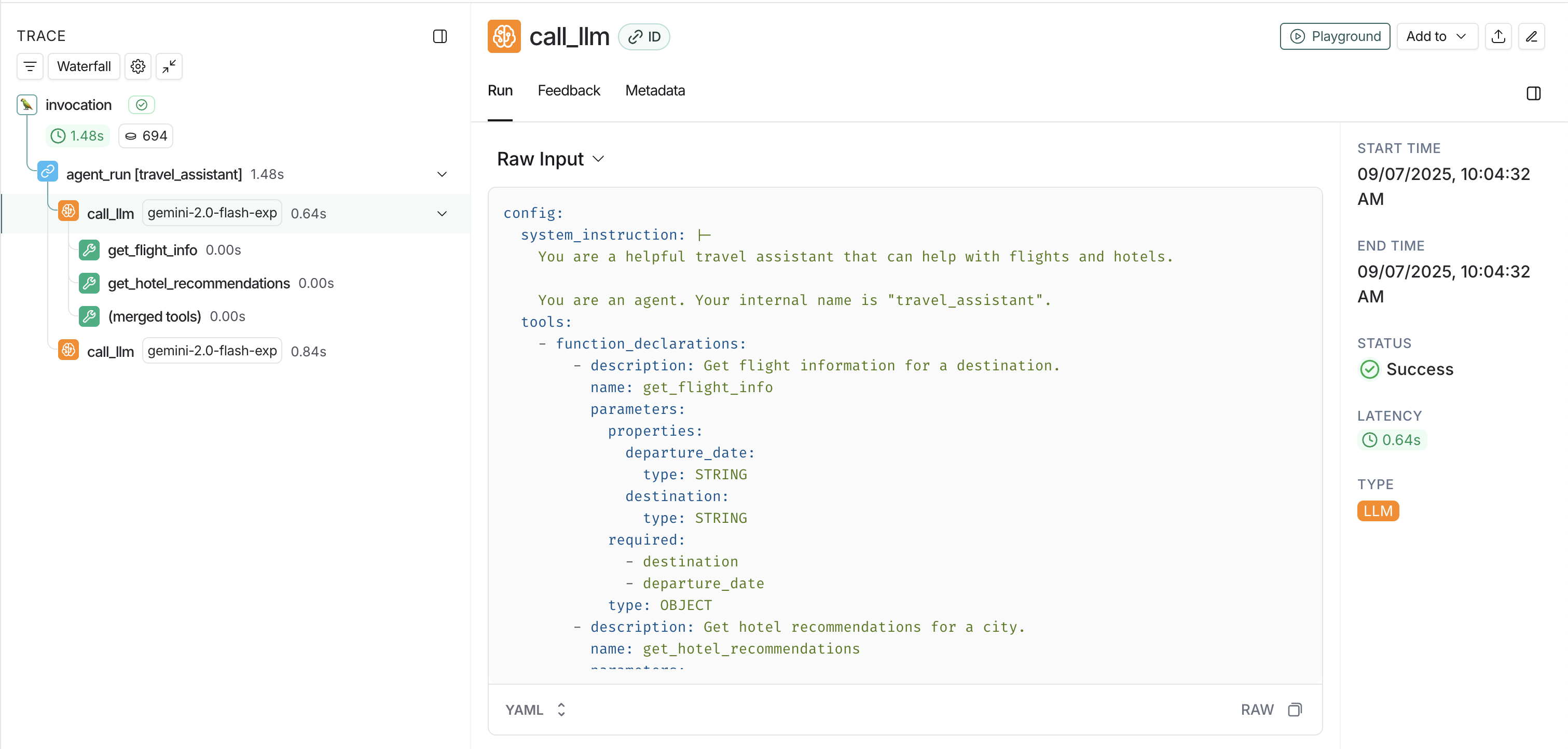Installation
Install the required packages using your preferred package manager:Setup
Set your API keys:Configure tracing
To trace ADK agents, useconfigure_google_adk() from the LangSmith SDK. Call this function once at the start of your application before creating any ADK agents:
project_name: LangSmith project to send traces to. Defaults to theLANGSMITH_PROJECTenvironment variable.name: Name for the root trace. Defaults to"google_adk.session".metadata: Dictionary of key-value pairs for additional context.tags: List of strings to categorize traces.
Example
This example creates a weather agent with a tool, then runs it with tracing enabled:View traces in LangSmith
After running your application, you can view traces in the LangSmith UI that include:- Agent invocations: Complete flows through your ADK agents
- Tool calls: Individual function calls made by agents
- LLM interactions: Requests and responses from Gemini models
- Multi-agent workflows: Traces from sequential and parallel agent compositions

Custom metadata and tags
Add metadata and tags when configuring tracing to categorize and filter traces:Multi-agent workflows
The integration automatically traces multi-agent workflows including sequential and parallel agent compositions:Connect these docs to Claude, VSCode, and more via MCP for real-time answers.

